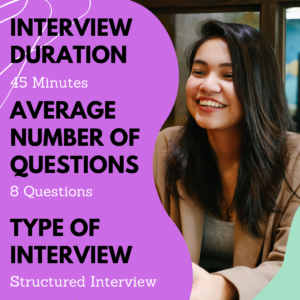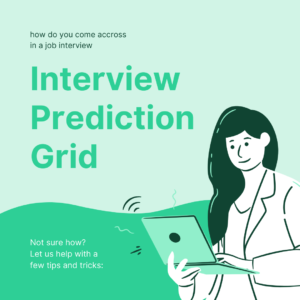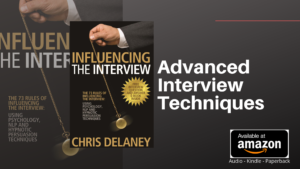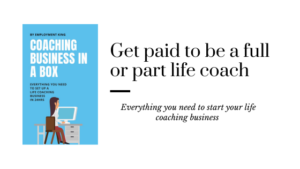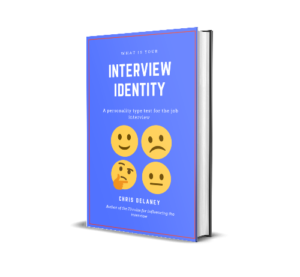Job interviews are complicated at the best of times, but often employers unconsciously make the interviewer harder due to the way the interview questions are phrased.
The three common mistakes employers make are:
- Asking multiple questions embed into one interview question.
- Questions that have a hidden meaning – including the ‘tell me about your last job?’ question.
- Ambiguous questions.
Job seekers, during the job interview, have their hands tied. It is impossible for an interviewee to explain to the interviewer that they need to improve the way they phrase the interview questions – this would only end with a rejection notice.
Instead, applicants need to understand the common mistakes employers make and how to overcome these tricky interview questions during the recruitment process.
Multiple Questions in One Interview Question
Career professionals have to remember that a high number of interviewers have never been trained in the art of interview communication.
Job interviews are often conducted by either a HR staff member (often trained in the art of interviewing) or a potential line manager (rarely trained in interviewing).
It is these same untrained managers who are responsible for writing the interview questions. Employers, generally speaking, ask 8-10 interview questions, but the essential criteria list can number upto 30 criteria.
Due to needing to check if the applicant possesses all the required skills, interview questions end up being stuffed with additional questions, confusing the candidates.
An example of ‘interview stuffing’ is when an interviewer requires an example of problem-solving. The interview questions would sound like, “Give me an example of when you have overcome a problem?”
Additional questions can be asked that are helpful to the applicants, “State the problem, what actions you took, and the outcome.”
Not so helpful is when the question is filled with additional questions, “Give me an example of when you have overcome a problem? Maybe one when you worked on your own or in a team. And explain if you used or know what a risk register is?”
Often the additional embedded questions aren’t part of a written question. Instead the question is impromptu during the interview itself.
How to answer lengthy interview questions?
When asked long descriptive questions, stuffed with a follow-up interview question the interviewee can receive a low-scoring answer as they focus on one of the embedded questions rather than another. This is because a structured job interview means the employers have to reference the applicant’s answer against the scorecard criteria.
To ensure an answer meets the marking criteria, job candidates must cover all bases while being seen as a confident communicator – rule 3 of a successful job interview.
Using the ‘overcome a problem’ question, the applicant initially can state “I have two short examples…” informing the interview panel of the structure of the interview answer.
Next, the two examples need to meet the additional criteria questions, “the first one is overcoming a problem when working as part of a team. While working at….”
Finally, when a summary can be added that covers any additional questions not yet disucssed, “In our line of work we are constantly faced with problems that require solutions. To be more effective I utilse a risk register….”
Hidden Meaning Interview Questions
In the main, interviewers don’t design purposely tricky interview questions, But often, when taken at face value, an applicant can misunderstand the reason why a question was asked.
Understanding the reason for the interview question gives an interviewee an advantage as their answers can be tailored to meet the job criteria, resulting in a high-scoring answer.
An example of the ‘hidden meaning’ question is the, ‘Tell me about your last job?’ interview question.
Many candidates wrongly believe to answer the ‘last job’ question they should talk about the company culture, duration in the role, company successes, and the size of the organisation.
The required answer isn’t that obvious. What employers are really asking when they say “tell me about your last job?” is, ‘how did your last job prepare you for this job?’ This is the hidden meaning behind this question.
Think about it? Why would an employer ask about the company culture or the size of an organisation the applicant worked at?
Remember, the goal of a recruitment process is to predict the job performance of each applicant before offering the perceived best employee the advertised position.
For this question, employers want to know:
- What skills did you develop that will be useful in the our company?
- What ideas, knowledge and experiences will be useful if you were to be employed?
- Do you have a skill or quality that would add value to the business plan?
- Were you influential in the completion of a project/outcome?
- Has your work ethic or character helped to increase business output?
- Do you have experience on a project similar to one we are just about to launch?
Other hidden meaning interview question examples.
What type of working environment suits you? Hidden meaning: Will you work well within our company culture?
Have you ever made a mistake? Hidden meaning: Do you learn from mistakes/what have you learnt from a mistake?
Why do you want to work for this company? Hidden meaning: Are you likely to stay/leave the company within a short timeframe?
What are your strengths? Hidden meaning: Do you possess the essential criteria for the advertised role?
What would you do within the first few weeks of starting the role? Hidden meaning: Do you need hand-holding or can you get on with the required duties?

Ambiguous Interview Questions
One of the biggest barriers for the job applicant is the high number of ambiguous job interview questions.
The real barrier here is that many questions don’t actually sound ambiguous.
An example of this is the stakeholder question, “how would you collaborate with a key stakeholder?” As a stakeholder is any group affected by the company, there are numerous stakeholders which all have varying levels of interest and influence over the company.
Imagine a retail store asking this question. Two key stakeholders are 1) customers, and 2) suppliers. The approach for collaborating with each group of stakeholders would vary.
A second example, is the interview question: “What is your approach to project management?” Approaches vary depending on the project, timeframe, associated risks and the number of stakeholders collaborating on the project.
Similar to the, “What role do you take when working within a team?” The answer can change due to varying factors of the team and project: the size of the team, is the applicant is employed to manage the team/project, if the task is reacting to a situation and therefore urgent, or a proactive team task allowing more time for creativity.

Answering Ambiguous Questions
To answer any ambiguous questions, first ask for specifics.
Gaining the detailed intelligence by asking for specifics, gives an applicant all the required data they need to frame their answer so it is relevant to criteria on the interview scorecard.
Let’s say the employer asks “How would you ensure you meet your targets by the month-end?” The question can be answered by talking about the month as a whole; projecting targets, planning actions, and monitoring results.
Whereas, the employer may have meant if the employee was underperforming (as this is common within their organisation) and is interested to hear how the applicant acts under pressure.
A second example is, “How will you make an impact if you were employed here?” This and most other ambitious interview questions are opened ended. Ask a closed question to get the required detail needed to answer the question as expected by the employer: “Do you want me to talk about how I will have impact on my colleagues to achieve team targets or how I will impact on the positive relationship with stakeholders?”
By asking the “A or B” scenario requires a response from the employer. Employers, now responding in detail, will give the virtual clue to support the interviewee to succeed.












